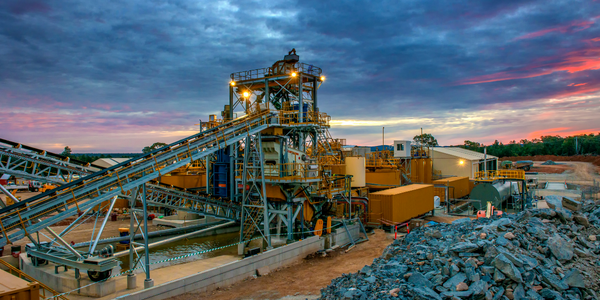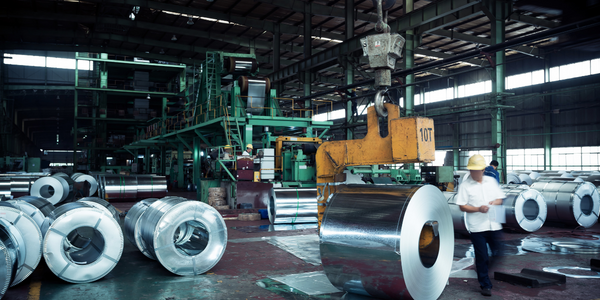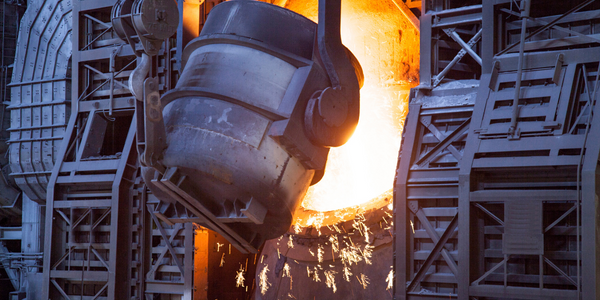Technology Category
- Processors & Edge Intelligence - Embedded Operating Systems
Applicable Industries
- Metals
Services
- System Integration
About The Customer
China Steel Corp. (CSC) is the largest steel company in Taiwan, controlling more than 50 percent of the domestic market. The company produces around 10 million tons of crude steel annually, with a product range that includes plates, bars, wire rods, and hot and cold rolled coils. CSC is a significant player in the steel industry, and its operations and production processes generate a wealth of data. The company's commitment to digital transformation and the effective use of this data is a testament to its forward-thinking approach and its drive to maintain its market-leading position.
The Challenge
China Steel Corp. (CSC), Taiwan's largest steel company, faced a significant challenge in upgrading its IT environment. The company saw the generational shift as an opportunity to transform its corporate structure and better utilize its extensive historical data. However, the task was enormous, involving the rewriting of nearly 200 applications. The challenge was further complicated by the need to ensure that the transition from COBOL to Java did not disrupt the company's daily operations. The company needed a solution that would allow it to carry out real-time analytics, optimize pricing, better manage its supply chain, and increase revenue.
The Solution
CSC addressed its challenge by deploying an open systems platform on the Linux operating system. This allowed the company to carry out real-time analytics. For instance, the company could use its decades of production and transaction data to simulate steel prices. The solution could then create a pricing model for production based on fuzzy analytics. By comparing current and historical conditions, CSC could optimize pricing, better manage its supply chain, and grow revenue. The solution components included IBM® DB2® Analytics Accelerator, IBM Global Technology Services® – Systems Services, IBM Integrated Facility for Linux, and IBM zEnterprise® BC12.
Operational Impact
Quantitative Benefit

Case Study missing?
Start adding your own!
Register with your work email and create a new case study profile for your business.
Related Case Studies.

Case Study
Goldcorp: Internet of Things Enables the Mine of the Future
Goldcorp is committed to responsible mining practices and maintaining maximum safety for its workers. At the same time, the firm is constantly exploring ways to improve the efficiency of its operations, extend the life of its assets, and control costs. Goldcorp needed technology that can maximize production efficiency by tracking all mining operations, keep employees safe with remote operations and monitoring of hazardous work areas and control production costs through better asset and site management.

Case Study
KSP Steel Decentralized Control Room
While on-site in Pavlodar, Kazakhstan, the DAQRI team of Business Development and Solutions Architecture personnel worked closely with KSP Steel’s production leadership to understand the steel production process, operational challenges, and worker pain points.

Case Study
Bluescope Steel on Path to Digitally Transform Operations and IT
Increasing competition and fluctuations in the construction market prompted BlueScope Steel to look toward digital transformation of its four businesses, including modern core applications and IT infrastructure. BlueScope needed to modernize its infrastructure and adopt new technologies to improve operations and supply chain efficiency while maintaining and updating an aging application portfolio.

Case Study
RobotStudio Case Study: Benteler Automobiltechnik
Benteler has a small pipe business area for which they produce fuel lines and coolant lines made of aluminum for Porsche and other car manufacturers. One of the problems in production was that when Benteler added new products, production had too much downtime.

Case Study
Continuous Casting Machines in a Steel Factory
With a very broad range of applications, steel is an important material and has been developed into the most extensive alloy in the engineering world. Since delivering high quality is absolutely crucial for steel plants, ensuring maximum productivity and the best quality production are the keys to competitiveness in the steel industry. Additionally, working conditions in steel factories are not suitable for workers to stay in for long periods of time, so manufactures usually adopt various machines to complete the steel production processes. However, the precision of these machines is often overestimated and the lack of flexibility also makes supervisors unable to adjust operating procedures. A renowned steel factory in Asia planned to improve its Distributed Control System (DCS) of furnaces as well as addressing the problem of insufficient accuracy. However, most well-known international equipment suppliers can not provide a satisfactory solution and local maintenance because the project needed new technologies to more accurately control equipment operations. By implementing Advantech’s automated monitoring and control solution, steel factories can not only improve the manufacturing processes but can also allow users to add additional functions to the existing system so as to make sure the operation runs at high efficiency.

Case Study
Automated Predicitive Analytics For Steel/Metals Industry
Asset to be monitored: Wire Compactor that produces Steel RebarCustomer Faced The Following Challenges:Dependent upon machine uptime.Pressure cylinders within the compactor fail to control compression and speed causing problems in binding the coil.Equipment failure occurs in the final stage of production causing the entire line to stop, can you say bottleneck?Critical asset unequipped with sensors to produce data.



